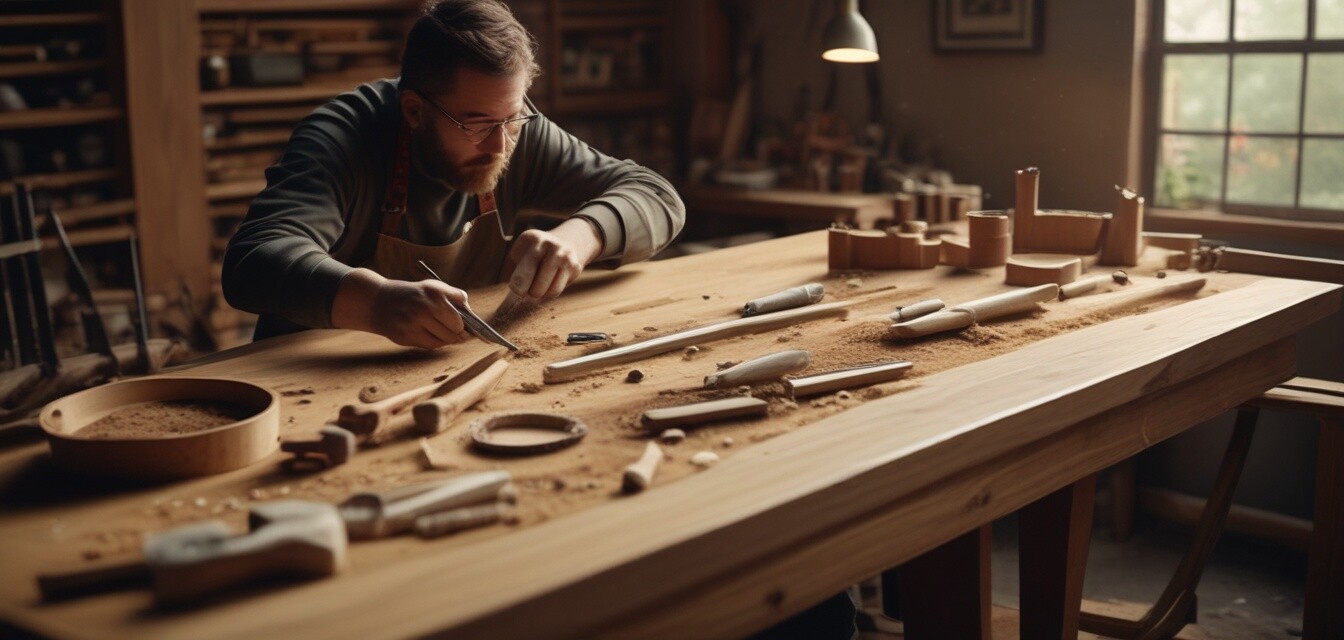
The Role of Artisans in Sustainable Furniture
- Artisans play a significant role in sustainable furniture design by utilizing eco-friendly materials.
- Handcrafted furniture reflects the unique craftsmanship and culture of the artisans.
- Supporting local artisans helps in community development and reduces carbon footprint.
- Artisans contribute to innovative design trends in sustainable furniture.
- Investing in artisan-made furniture is a long-term choice that often supports a circular economy.
In recent years, the demand for sustainable furniture has surged as consumers become more aware of their environmental impact. Among the key players in this movement are artisans who skillfully blend traditional craftsmanship with eco-friendly materials and innovative designs. This article explores how artisans enhance sustainable furniture design, notably unique TV stands that reflect their exceptional craftsmanship.
Understanding Sustainable Furniture
Sustainable furniture refers to furniture made from environmentally friendly materials and processes that minimize ecological impact. This kind of furniture is often produced with a focus on durability, recyclability, and ethical production practices. Below, we delve into some core aspects of sustainable furniture:
| Aspect | Description |
|---|---|
| Materials | Use of recycled, reclaimed, or sustainably sourced materials. |
| Production | Ethical labor practices and low carbon footprint manufacturing. |
| Durability | Designed for longevity to reduce waste. |
| Recyclability | Furniture that can be easily disassembled and recycled. |
The Artisan Touch
Artisans bring a unique level of detail and care that mass-produced furniture often lacks. Their craftsmanship ensures that every piece is not only functional but also a work of art. Here's why their role is crucial:
- Unique Designs: Each artisan has a distinctive style influenced by their culture, resulting in one-of-a-kind furniture pieces.
- Quality Craftsmanship: Artisan-made furniture often boasts superior construction, leading to longer-lasting items.
- Cultural Heritage: Artisans preserve traditional techniques that enhance the aesthetic value and history of furniture.
Artisans and Sustainability
Many artisans prioritize sustainable practices in their work, from sourcing materials responsibly to implementing eco-friendly techniques in their production. Here are some ways they contribute:
- Material Sourcing: Many artisans favor locally sourced and reclaimed materials, reducing the need for transportation and promoting local economies.
- Waste Reduction: Artisan workshops often produce less waste than large factories, as they minimize excess and find creative solutions for leftover materials.
- Energy Efficiency: Smaller production scales generally entail lower energy consumption compared to industrial manufacturing.
Examples of Artisan Contributions in Furniture Design
Artisans are constantly innovating the furniture design landscape. In particular, their influence is evident in categories such as:
- Wooden TV stands: Infusing natural materials with innovative design.
- Corner TV stands: Space-saving solutions that maintain style and function.
- Entertainment consoles: Converging functionality with artistic expression.
The Future of Sustainable Furniture
The future of sustainable furniture relies heavily on the artisan movement, which seeks to create not just products, but stories woven into each piece. As consumer preferences shift towards sustainable choices, artisans have the opportunity to influence groundbreaking trends and designs. Let’s look at the anticipated trends:
| Trend | Details |
|---|---|
| Nature-Inspired Designs | Furniture that incorporates organic shapes and textures. |
| Multi-Functionality | Furniture that serves several purposes, maximizing space use. |
| Minimalist Approach | Less is more; focusing on designs that emphasize simplicity and functionality. |
Supporting Artisans: A Responsible Choice
By choosing artisan-made furniture, consumers are not only acquiring pieces of exceptional craftsmanship but are also making a responsible choice that benefits the environment and supports local communities. It’s a choice that fosters the growth of sustainable practices within the furniture industry and contributes to a healthier planet.
Pros
- Unique, one-of-a-kind designs.
- Easily integrated into various home aesthetics.
- Long-lasting quality and durability.
- Support for local communities and economies.
Cons
- Often higher upfront costs than mass-produced items.
- Limited availability for specific styles or quantities.
Conclusion
Artisans are at the forefront of sustainable furniture design, creating unique pieces that resonate with consumers who value quality, craftsmanship, and environmental responsibility. As the marketplace continues to evolve, the role of artisans will become increasingly vital in shaping furniture trends that highlight sustainability and care for the planet.
For those looking to furnish their homes with eco-friendly options, our buying guides provide insights into selecting the best sustainable furniture pieces that meet your needs.